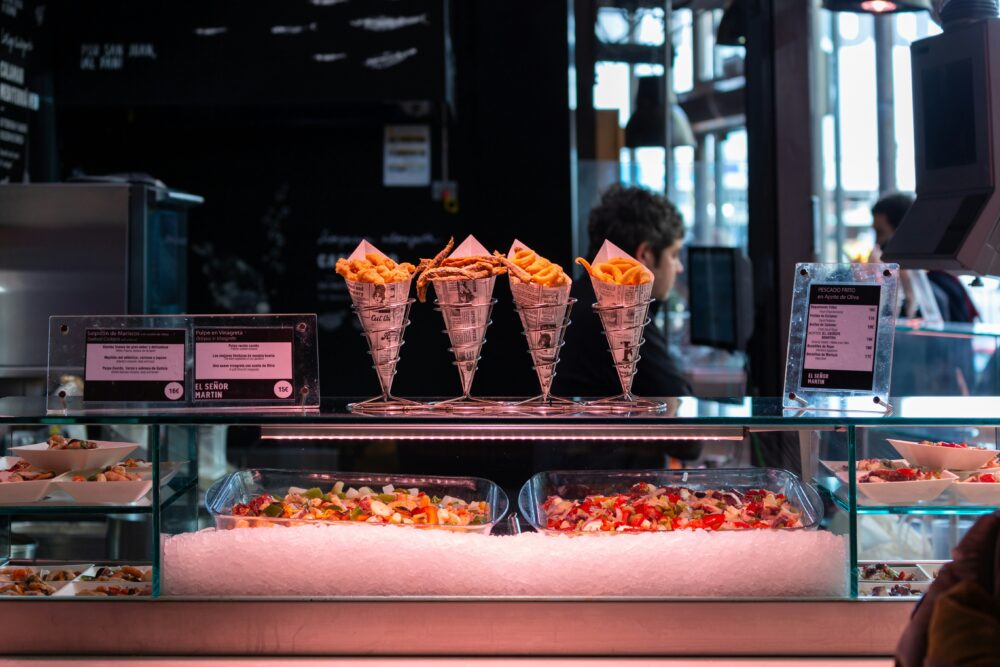Food plays a huge role in defining a country’s culture and, as a result, it has a strong linguistic impact, too. There are many curious food expressions around the world; some of which refer to actual food, while others are more metaphorical and, as such, give us food for thought (we just had to get that pun in somewhere!). Read on to find out about some interesting food expressions in five different languages.
English
The English idiom we’ve chosen for this article has to do with chickens, or rather, with unborn ones! The phrase “to put all of one’s eggs in one basket” is generally used as a negative expression to discourage someone from putting all of their hopes and efforts into one possible outcome/direction

The result of such a strategy might well be that all their hopes and efforts will end up “broken”, i.e. unfulfilled, should something go wrong – leaving nothing to fall back on (or any unbroken eggs that are still good to use). A compelling expression, don’t you think? It’s easy to visualise the negative outcome, those broken eggs in the basket… and if you have ever happened to break an egg, you will certainly know how inconvenient it is to break several at once!
French
Have you ever had a very, very, very embarrassing moment? You know, one of those where your face manages to turn every possible shade in the colour wheel – but mainly red. Well, French people like to be a bit more specific about these things: not just any red will do – instead they say that you are red “like a tomato”!

The expression “être rouge comme une tomate” means just that, and is very commonly used in spoken French. While it is perfect for describing those very embarrassing moments above, it can also be used with a slightly more positive meaning. In fact, this phrase can also be used simply to refer to someone who’s a bit shy.
Italian
When the topic is food, Italian always makes it to the list. This Mediterranean country is renowned for the wide variety of delicious food it offers, in particular such delicacies as homemade pasta… or gnocchi! The expression “Ridi, ridi che mamma ha fatto gli gnocchi” (You keep laughing! Mum has made gnocchi) is especially famous across the country, and may have originated from Rome.

This sentence is generally used in response to an unjustified fit of laughter, as if the speaker was wondering “Why on earth are you laughing at all? It’s not like mum has made gnocchi.”. The reference to gnocchi is purely casual: the idea is that gnocchi, like any other mouth-watering food, simply symbolises a legitimate reason for laughter (happiness). Of course we agree with that! We can’t think of a better reason to be happy than a lovely gnocchi dish. 😊
Russian
We all love children for their ability to get excited about things that us adults find “normal”, but sometimes their excitement can be a little over the top. Especially at the age when they start going to school and learning new things, children can become a bit, well, overconfident – and often tend to show off.

Russians are not fans of this at all, so they invented the expression “профессор кислых щей” (professor of cabbage soup). This is used to mock children who are perhaps too proud of their newly acquired knowledge and already feel like experts in the field. Interestingly enough, this is a rather accurate reflection of Russian culture in a wider sense, where it isn’t considered polite to show off for your achievements.
Spanish
Sometimes it feels as though the world is conspiring against you, such as when you are so excited about doing something, but somehow you don’t have the means to do it. Have you ever felt like this? If you don’t know how to describe your emotion, Spanish people have an expression for it: “Dios da pan a quien no tiene dientes” (God gives bread to those who don’t have teeth).

This statement definitely fits the scenario described above, as often, if for some reason we can’t achieve something even though we really want to, other people seem to have it easy and manage to achieve it despite not being particularly interested in or passionate about it. A perfect example of an apparent injustice!
The meanings of the above expressions are very much dependent on the culture they are used in. And it’s fascinating that this food language differs between languages and countries. Not surprisingly, then, when it comes to translation, when dealing with such idiomatic language there is often room for misinterpretation and one can easily end up with a meaningless adaptation if you’re not careful. These expressions are a great example of how professional translation is needed to investigate sufficiently the usage and meaning of idiomatic expressions, and to produce a correct and equally idiomatic translation.
If you are in need of professional translation services, give us a call on +44 (0)207 294 7710 or send us an email to info@creativetranslation.com and we will be happy to help!




